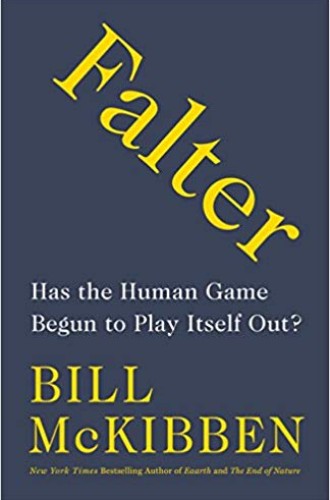Unrigging the human game
We need to stop playing to win, says Bill McKibben, and start playing to keep the game going.
In the past few years, I’ve increasingly found myself in conversations about technology and ethics. The topics range from how artificial intelligence is reshaping the labor market to what kinds of technology will help us sequester carbon to methods of augmenting human life to adapt to new climate realities. As I argue for restraint over ingenuity, an interlocutor will inevitably say, “You should read Steven Pinker. He’s an ethicist and he thinks the human condition is getting better. He even has proof.” Never mind that Steven Pinker is not an ethicist; the critique is clear: stop being so negative about the future. This is very much like telling an environmental ethicist to smile more.
Bill McKibben takes on Pinker’s narrative of human moral progress specifically as it applies to climate change. He does so with attention to psychology. People want to believe that things get better, that individual action matters, and that what we’ve done to the environment can be reversed. McKibben himself is a hopeful soul. He pivots off of Pinker’s blind optimism, acknowledging that Pinker’s books “remind us precisely how much we have to lose if our civilizations do indeed falter.” Rather than pushing us toward despair, McKibben situates his book as a call to action. Hope is a useful tool only if you know the shape of reality that you face. McKibben gives us the environmental and political shape of reality in stark terms.
McKibben refers to human life as a game, one that encompasses culture, commerce, politics, religion, sport, art, social life, and all human experience. It involves the coordination of natural and social resources to meet human needs at every level. Going to an orchestra concert, for example, represents a pinnacle of human cooperation and the reshaping of natural goods. Beyond the beautiful music that is made by people working together, there’s also the cutting of trees for wood, the shaping of the wood into instruments, the teaching of music broadly, the teaching of specific musical traditions, the transportation of the instruments, the transportation of the people, and more. And behind each of these actions lies even more detailed kinds of cooperation.






